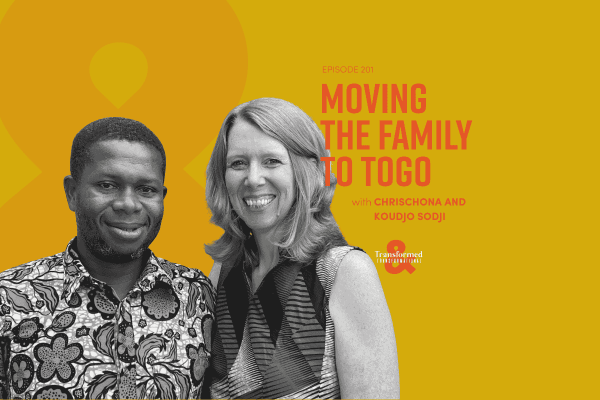46: Processing Trauma (with Annie Stepanenko)

Guest: Annie Stepanenko
Annie Stepanenko helps us define trauma, understand its effect on the brain, and consider how we can show self-compassion and walk with others through processing trauma.

- Episode 33: Mental Health
- Warty Comb Jellyfish and Angler Fish
- “Essentially, trauma is anything that overwhelms our ability to cope.”
- John 8:32
- “When we label things what they are and try to seek truth, we are better able to live in what God has for us. Calling trauma ‘trauma’ means that we can seek healing that God has for us, and it means that we can be better aware of things that we face in our lives.”
- “With that knowledge comes empowerment, in a sense, because we’re aware that there’s choice in how we respond and in how we take care of ourselves and in how we seek the Lord in it.”
- “Collective trauma [is] the same trauma happening to a group of people [...] We might all respond in different ways, but there’s that root of similarity at the beginning.”
- Three levels of the brain: logic, emotional center, survival and safety
- “Offer yourself compassion. So often when we don’t understand why we’re responding the way that we are, we lash out at ourselves in frustration. That’s understandable, but when we do that, it hurts and just aggravates the problem.”
- Brene Brown’s Short on Empathy
- “Sometimes, if we just have no idea what to say, that can be the best thing to say: ‘I don’t know what to say here, but I’m here.’ Just being with that person, even in silence, can be the best thing that really shows love and care.”
- “I think that maybe the simplest thing we can do for ourselves is listening and showing ourselves curious and compassionate attention, and trying to treat our minds and bodies and souls as God would treat us - with love and with care. That’s a huge part of living out of His love.”
- “The reality as Christians is that, yes, we believe God is good, but we don’t always feel like God is good, and that’s okay. I think that those are the times when we try to wrestle that out with Him and bring that agony and anguish to Him, and ask Him to be present with us in it.”
- “Emotions are God’s gift to us; they’re a way that we can better understand what’s going on. They might not always say what’s true, but they always give us deeper understanding, especially when we let God into them and try to process them with Him.”
- “God cares so much about our emotions and our hearts and wants to hold those dearly and treat them preciously.”
- “God works miracles, but I think He prefers to go with the slow and deep healing because we’re more aware of Him being at work.”
- “The best thing we can do for ourselves in unpacking past trauma and even in being aware of current trauma that we are facing is [to ask]: What narrative am I making of this event? What am I telling to myself? Is it true? What does God want to say here, and am I making space and His love to speak into this?”
What’s changing our lives:
- Keane: New brand of pocket notebooks
- Heather: Noise cancellation on headphones
- Annie: Try Softer by Aundi Kolber
Weekly Spotlight: Arbor Christian Academy
We’d love to hear from you! podcast@teachbeyond.org.
Podcast Website: https://teachbeyond.org/podcast
Learn about TeachBeyond: https://teachbeyond.org/
Related Stories
Hear the story of how a missionary kid from Austria met someone from a village in Togo, what it has been like to move their family from Chicago to...
Mark Kordic from the Alliance for the Unreached shares about how we can all be part of reaching unreached people groups with the hope of the...
How can we follow Jesus out of joyful obedience rather than dutiful obligation? Brian Delamont, Executive Vice President of TeachBeyond, returns to...



